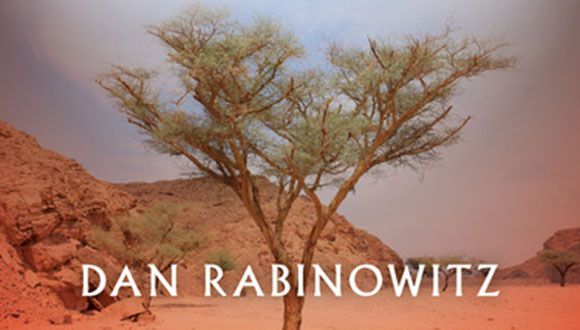
A fresh study conducted by Professor Dan Rabinowitz, Department of Sociology and Anthropology, Gershon H. Gordon Faculty of Social Sciences at the Tel Aviv University, surveys regional climate models for the Middle East, analyzes climate inequalities and examines threats posed by global warming to security and political stability in the region.
In a new book published by Stanford University Press entitled 'The Power of Deserts: Climate Change, the Middle East and the Promise of a Post-Oil Era', Professor Rabinowitz argues that the region, already hotter and dryer than most parts, could soon see exacerbated water shortages, decreased agricultural productivity, large scale displacement and conflict as a result of a deteriorating climate.
"The tragic cases of Sudan and Syria", says Rabinowitz, "demonstrated what could happen when shrinking agricultural outputs force millions to leave rural hinterlands and seek refuge in cities which are ill-equipped and often unwilling to absorb them". "Global warming", he warns, "could turn such scenarios to a new normal in the Middle East, fanning further friction between ethnic groups, damaging instability and creating conflict".
In a chapter dedicated to climate inequality, the book demonstrates that wealthier and more technologically advanced countries in the region, which are responsible for higher per-capita emissions of greenhouse gases, have the means to adapt to the Post Normal Climate Condition and protect themselves from its perils. This while poorer neighbors, whose contributions to the climate crisis has been significantly smaller, stand to suffer most.
'The Power of Deserts' however offers more than somber warnings. Its latter part in fact raises the surprising, counterintuitive notion that the Middle East could eventually become part of the solution to the climate crisis. Using his deep knowledge of the region and an ability to present scientific data with clarity and poise that has made him a leading Israeli voice on climate change, Rabinowitz makes a sober yet surprisingly optimistic exploration of an opportunity arising from a looming crisis.
The past 70 years, he says, in which oil reigned supreme, helped the oil-rich countries of the Persian Gulf accumulate legendary wealth. But with renewable sources of energy now eclipsing fossil fuels in transport and in electricity production everywhere, the age of oil is coming to an end. Add a disconcerting climate prognosis, and the oil rich countries in the Middle East now look at a precarious future. The need to calculate a different pathway going forward has become imperative.
Their best bet, Rabinowitz argues, could be exploiting solar energy. With more than 300 sunny days a year, abundant unproductive land, good capital reserves available for investment and a good track record of integrating new technologies in civil infrastructure, the Gulf states could drastically expand their use of solar energy for their domestic electricity production; invest heavily in renewable technologies and capacities around the world; then, at the right moment, turn their backs on oil and natural gas completely and, using their market power in the energy market ante, carve themselves a leading role in the energy universe of the future.
"Rather than resisting the energy transition, which was underway even before Covid-19 and was accelerated since," says Rabinowitz, "the Gulf States could switch to the 'right' side of history, join the struggle to curb climate change and gain respect in the eyes of many who once looked at them with suspicion and contempt. Significantly, this transformation on their part does not hinge on an ideological rebirth and the adoption of a 'green' outlook. It could transpire as a rare historical junction where self-preservation on the part of some works to the benefit of many others".
Dan Rabinowitz, Professor of Sociology and Anthropology at Tel-Aviv University, is Chairman of the Association for Environmental Justice in Israel. He was Head of TAU's Porter School of Environmental Studies and Chairman of Greenpeace Mediterranean. He received the Pratt Prize for Environmental Journalism (2012) and the Green Globe award for environmental leadership (2016).






